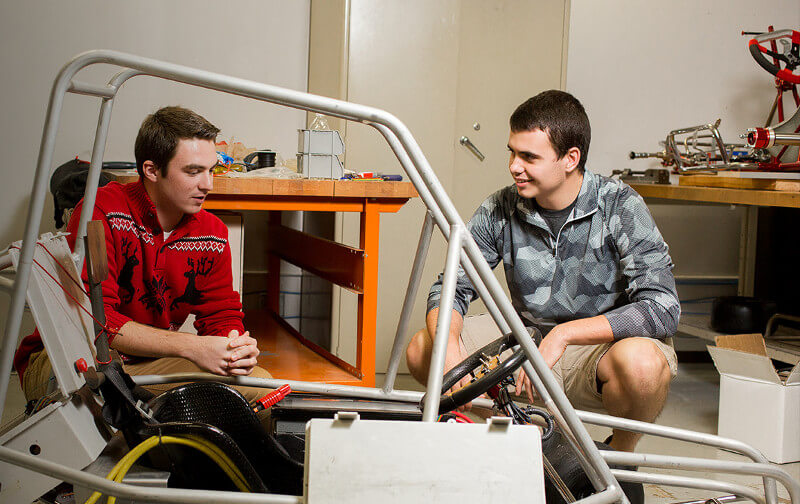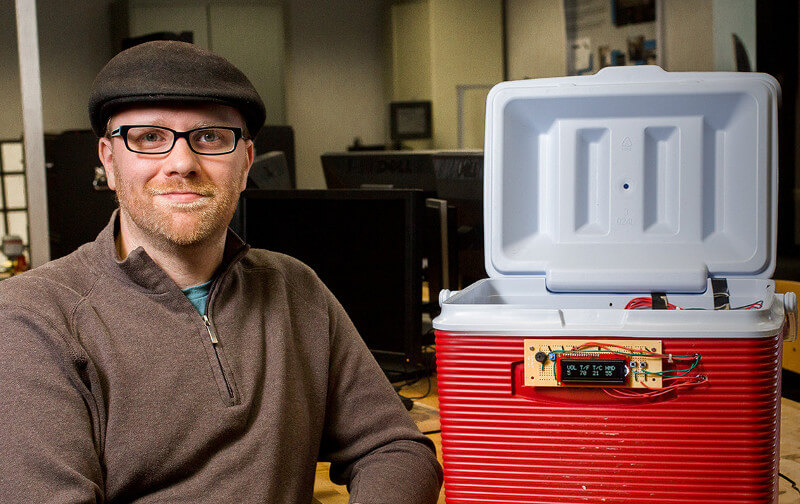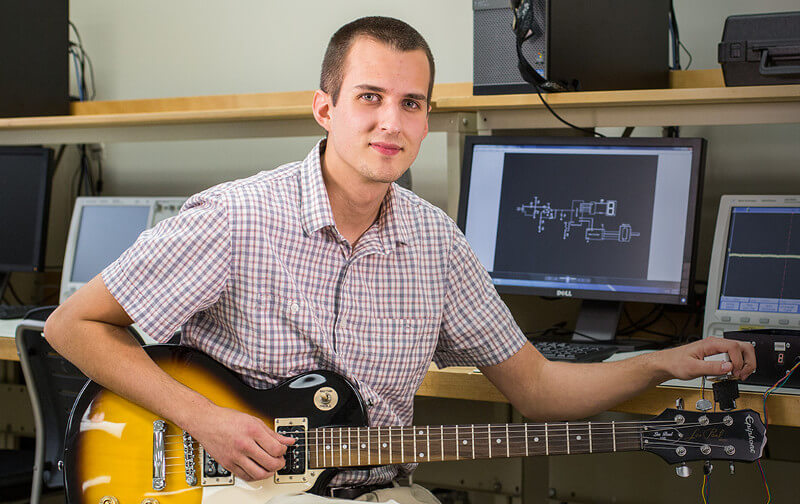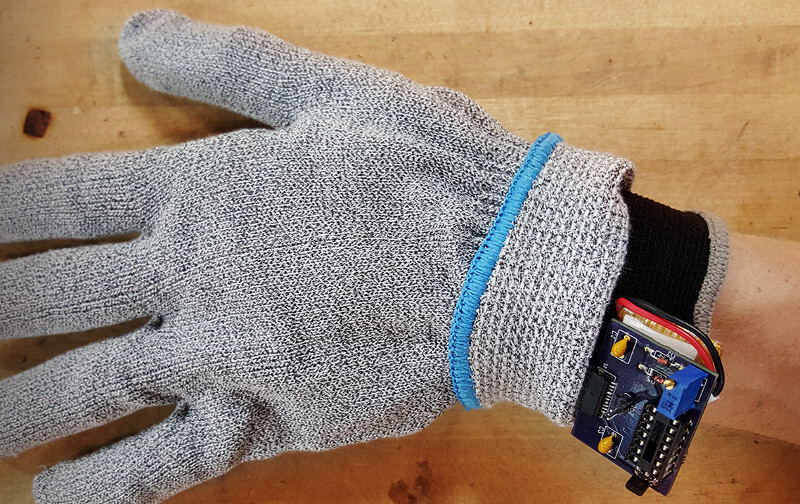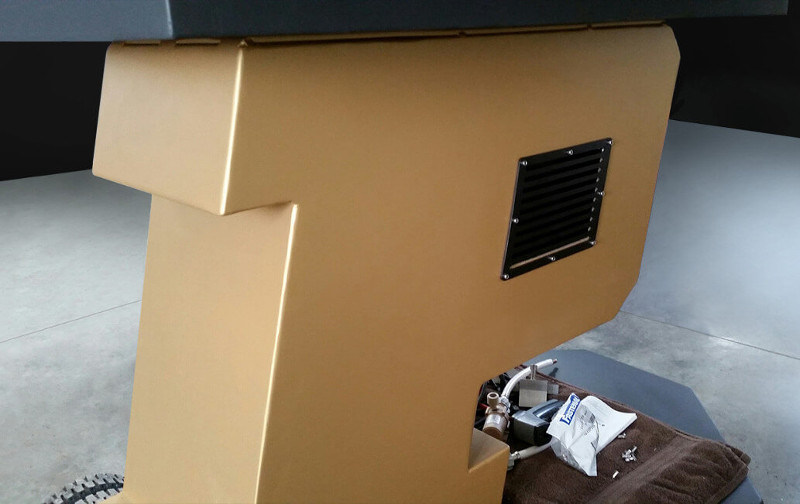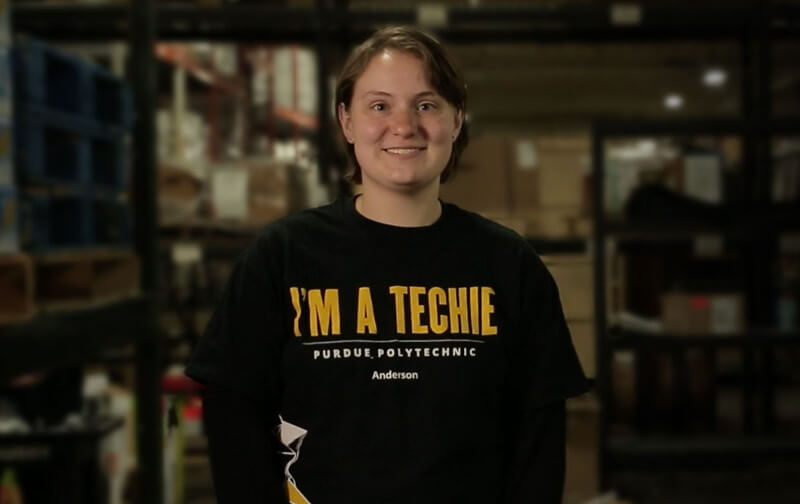THE ROAD TO BETTER WHISKEY: LESS WASTE, MORE WORT
Some might call working in an artisan whiskey distillery a dream job. But for Purdue Polytechnic South Bend graduate William Weikel, it’s all in a day’s work. In fact, creating a more efficient way to distill whiskey is not just his day job. It’s also his senior project.
Weikel also has a passion for brewing beer. While serving in Germany with the Army, he grew to love the local beer. When he returned to the States, he couldn’t find comparable beer so he began home brewing. He even built his own mash tun, which uses hot water to convert the starches in malted grains to fermentable sugars, a mixture called wort that eventually becomes a tasty home brew.
Originally, Weikel's road to better whiskey had nothing to do with his career goals. He wanted to be a linguist but decided to enroll in Purdue Polytechnic South Bend for engineering technology. The self-proclaimed military brat liked the idea of small classes and getting to know faculty on a more personal level. He also liked the career opportunities engineering afforded. He soon found his knowledge could be applied at a local distillery, Indiana Whiskey Company.
“The whiskey mashing process is very inefficient. A 400-gallon mash tun nets about 180 gallons after extraction. Another 20 gallons is lost when you clean the equipment. So about half a batch is lost,” he explained. “So I developed a better way to pull the wort out of the tun to decrease waste and increase yield.”
His idea was to use centrifugal force to more efficiently extract the wort. This would require a highly non-traditional tun with a bottom-mounted motor much like a washing machine. Polytechnic senior projects require students to conduct field research prior to building their prototypes. When he sought out distilling experts at universities around the country, the feedback was less than encouraging. “Basically, they told me not to mess with traditional processes,” Weikel said.
Undeterred, he plowed ahead, securing a $2,000 Commercialization and Research Grant from Purdue Polytechnic. When he couldn’t find someone to weld his aluminum mash tun prototype, he altered his original design and began production trials.
His results deserve a toast. The centrifugal mash tun decreased wort waste by 25 percent and reduced production time by 20 percent, resulting in more sellable whiskey at less cost.
Even though he graduated from the Polytechnic in May, Weikel's senior project isn't over. He plans to return to his original centrifugal mash tun design, which he believes offers the fast-growing micro distillery and brewery industry significant advantages. “As a home brewer and professional brewer at a distillery, I can say with certainty that this technology will be very much appreciated.”


